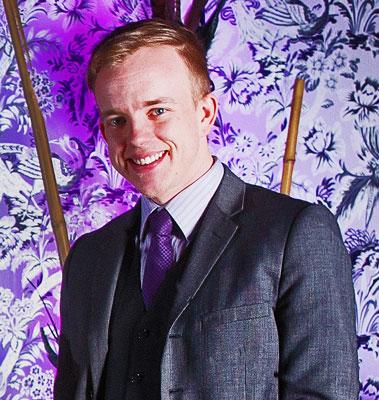Ian Capstick is a prolific tweeter, a cupcake maniac and Xtra’s political activist of the year.
He is a slight man and a dandy dresser, and he exudes enough energy to make running a marathon look effortless. So it is easy to see why Capstick finds high-stakes politics a natural fit.
“I have been in politics forever, even before I was allowed to be in politics,” he says. “I am not sure I should admit that I fraudulently joined the Liberal Party at 12, but I did. I was just the kind of kid that was obsessed with politics.”
Capstick entered politics in an unconventional way. While roasting beans and grinding coffee at Starbucks, Capstick made friends with a customer and ended getting a job at the Department of National Defence.
On Parliament Hill, Capstick worked in the office of Liberal MP Brian Tobin. When Tobin quit politics in 2002, Capstick moved to the office of Sheila Copps, travelling most of Western Canada with her as she ran against Paul Martin for the Liberal leadership. “Which was a bit of a quixotic quest, but I learned a lot,” he says. “I learned what it means to stand up for what you believe in, even though you know you are not going to win.”
Capstick left the Liberal Party after Copps was ousted from her seat. With the Liberals shifting direction, he hitched his wagon to another politician with big dreams: Jack Layton, the newly elected leader of the federal New Democrats.
That gig lasted four years until he left the Hill altogether.
During his time on the Hill, Capstick found his niche — training parliamentarians to speak with the press.
“It kind of clicked for me at that point that I am pretty good at teaching people how to be less afraid of what they are naturally afraid of,” he says.
Capstick’s lack of fear with regard to public speaking has given him the reputation of a savvy political pundit and one who is not afraid to be out.
“It has been my modus operandi on the Hill: an out gay man who isn’t afraid of being and using my sexuality — and I don’t mind using it,” he says. He adds that when he appears on CBC’s Power & Politics, he deliberately talks about being gay: “As a gay man, as a man with a man as a fiancé. The reason I do it is to provide viewers with a context as to who I am because I think the notion of a pundit is silly, especially as we pop out of nowhere with no credentials.”
During the recent municipal election, Capstick refused to take on any work — he owns a media company — while he organized mayoral debates using social media as the main communications platform.
Social media is now Capstick’s driving force; he left the Hill to open Media Style, a company that specializes in media, communications and digital training, including “not how you tweet, but why you tweet.”
In two years, Media Style has grown from a one-man operation to having four full-time staff, two offices and a dachshund.
Still, Capstick finds himself grappling with the idea of being nominated for a Hero award. In his mind, he is a spokesperson, media person, planner and political thinker, but he is not an activist.
“I guess I have seen and known so many activists who devote all of their waking hours to changing one thing. That’s a little bit different in my sense, in that I devote all my waking hours to community, broadly speaking,” he says.
Capstick believes in collaborative, distributive work; he encourages people with different skill sets to come together to get things done. He also believes in doing things in a fun and vibrant way, evidenced by his annual cupcake camp. Not only is it tasty, but it’s also financially viable: the last camp raised $6,000 for the Youth Services Bureau.
Capstick believes the queer community should work together, which is why he is thoughtful about where the community stands today and where it is heading.
“We don’t even have a national lobby group anymore; we have an amazing woman who does her best with not a lot of money, not a lot of time and not a lot of people caring,” he says, referring to Egale and Helen Kennedy.
Capstick wonders if the queer community will be united in wanting more — whether that means fighting for more rights or focusing attention on helping another minority group.
“It is a fundamental question that I worry about. That as we become more out, as we become more proud, how do we stay unified as a group of individuals and [remain] able to effect change. Because that is important to me; the sense of community is important to me. And I think that that, in everything I do, whether it is in my political or my personal life, that’s driving.”

 Why you can trust Xtra
Why you can trust Xtra


